This article underscores the critical importance of EBITDAR (Earnings Before Interest, Taxes, Depreciation, Amortization, and Rent) for hotel owners, asserting its pivotal role in evaluating operational profitability and informing strategic decision-making. By grasping the nuances of EBITDAR, property managers are empowered to make informed financial decisions, optimize revenue streams, and elevate their establishment's market value. However, it is equally essential to acknowledge the limitations of this metric, ensuring a comprehensive understanding that guides effective management practices.
Understanding the financial landscape of the hospitality industry is essential for hotel owners striving to enhance profitability and operational efficiency. One pivotal metric that stands out in this realm is EBITDAR—Earnings Before Interest, Taxes, Depreciation, Amortization, and Restructuring or Rent costs. This article delves into the multifaceted insights surrounding EBITDAR, equipping property managers with the knowledge to leverage this metric effectively.
However, what are the key strategies and potential pitfalls that hotel owners must navigate to maximize their EBITDAR and ensure sustainable growth in an increasingly competitive market?
Lights On employs a data-driven approach to enhance revenue management strategies that significantly impact ebitdar. By analyzing market trends and implementing tailored marketing strategies—such as performance marketing and social media management—property owners can effectively boost their profitability. These robust lodging marketing strategies not only attract more visitors but also improve occupancy rates and overall revenue, thereby increasing ebitdar.
Furthermore, Lights On provides interim revenue management solutions, ensuring ongoing optimization during staffing transitions. The integration of advanced revenue management strategies, including pricing optimization and demand generation, further supports this objective, enabling accommodations to maximize their financial performance in a competitive landscape.
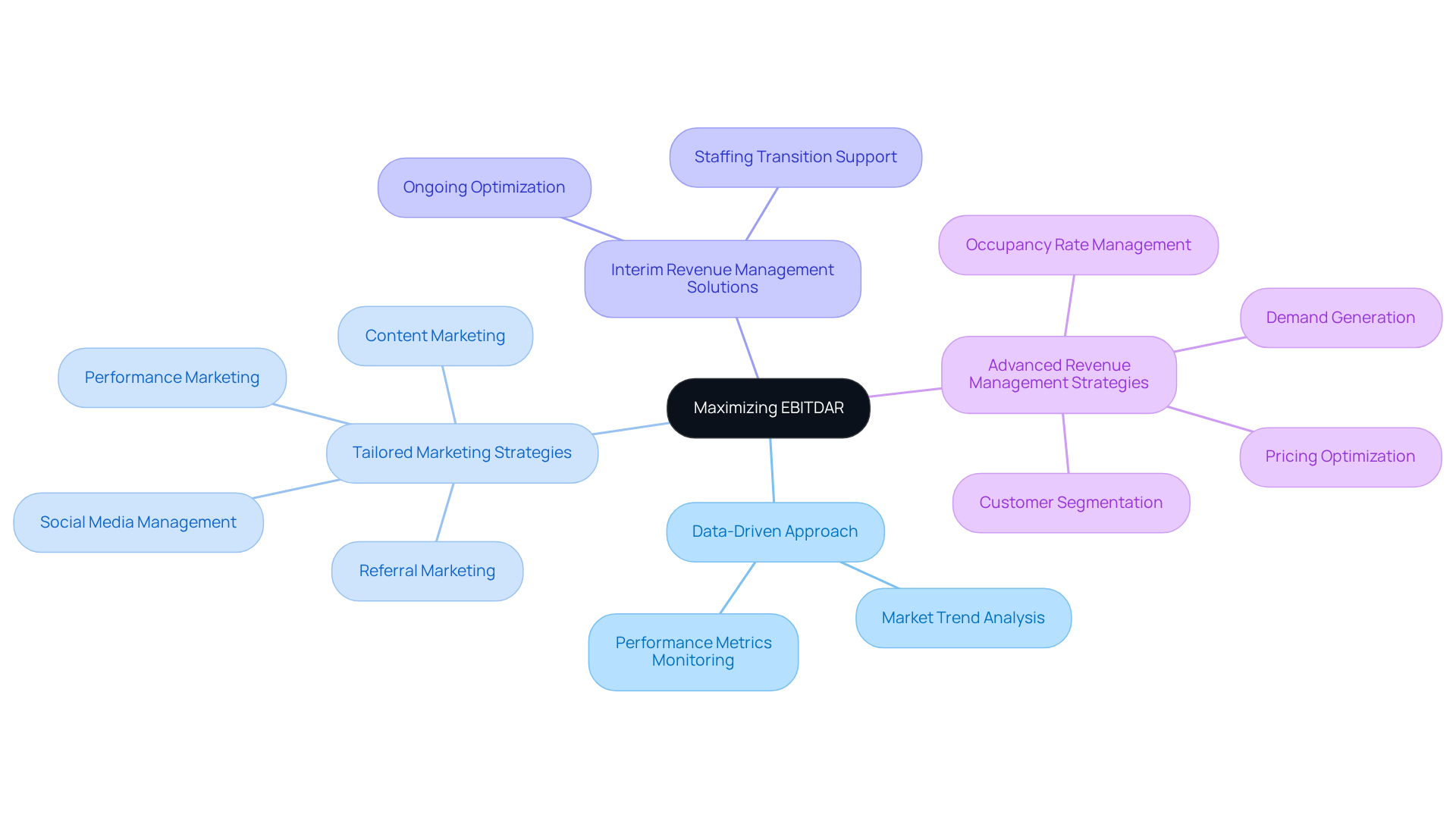
The metric known as ebitdar, or Earnings Before Interest, Taxes, Depreciation, Amortization, and Restructuring or Rent costs, is pivotal for property managers. By excluding expenses that can vary significantly between establishments, it provides a clearer perspective on operational profitability. This clarity facilitates improved comparisons among diverse accommodations, particularly those governed by different rental agreements.
Understanding ebitdar empowers lodging proprietors to make informed decisions regarding pricing strategies and operational efficiencies, ultimately leading to enhanced financial outcomes. Furthermore, as property managers navigate the complexities of their financial landscapes, leveraging ebitdar can be crucial in identifying areas for improvement and maximizing revenue potential.
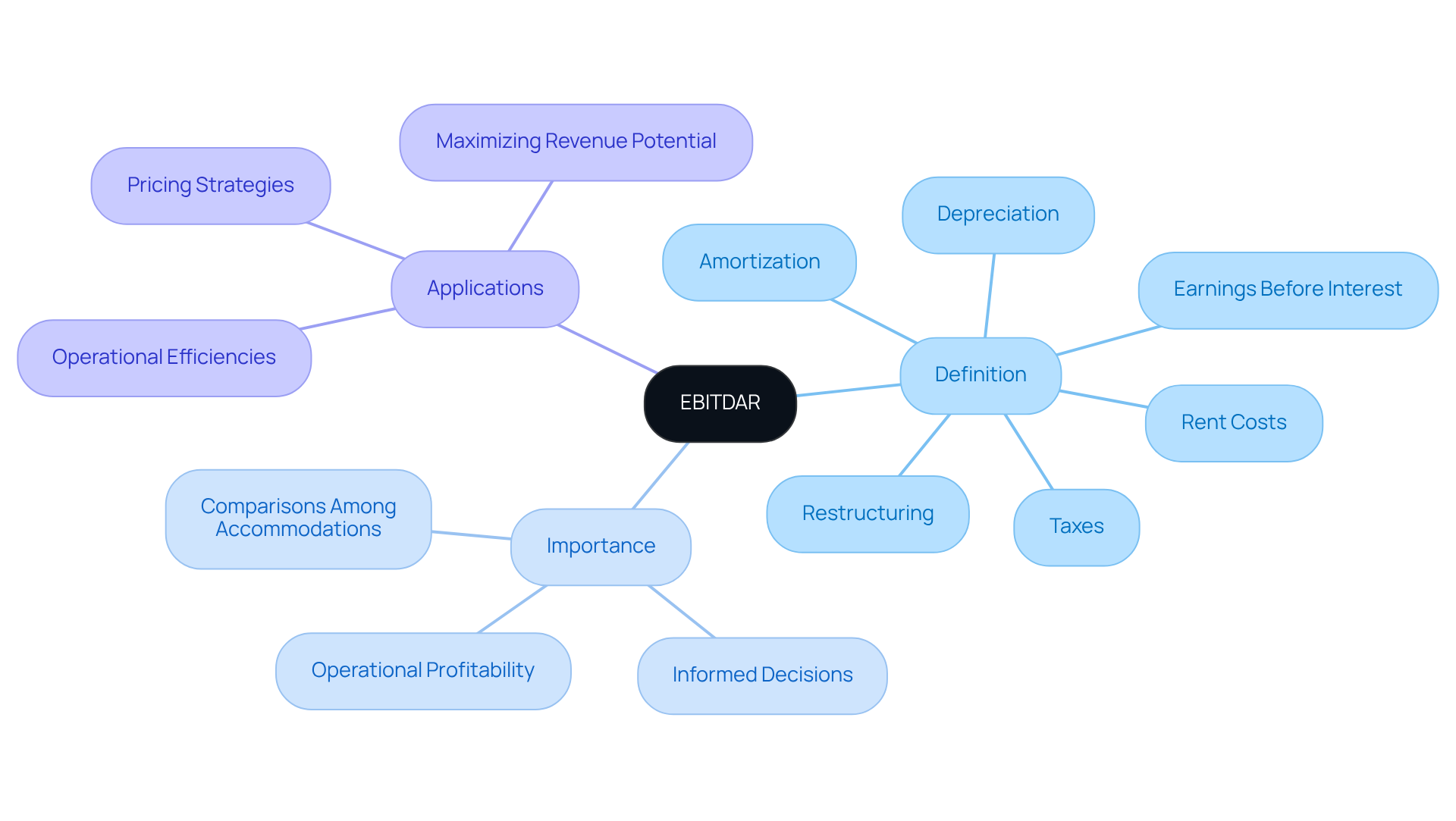
To compute ebitdar, it is essential to follow a systematic approach that includes earnings before interest, taxes, depreciation, amortization, and rent.
This process can be succinctly summarized in the equation:
Earnings Before Interest, Taxes, Depreciation, Amortization, and Rent, known as ebitdar, = Total Revenue - Operating Expenses + Rent/Restructuring Costs.
This calculation provides a comprehensive view of your establishment's profitability, facilitating enhanced financial planning and strategic formulation.
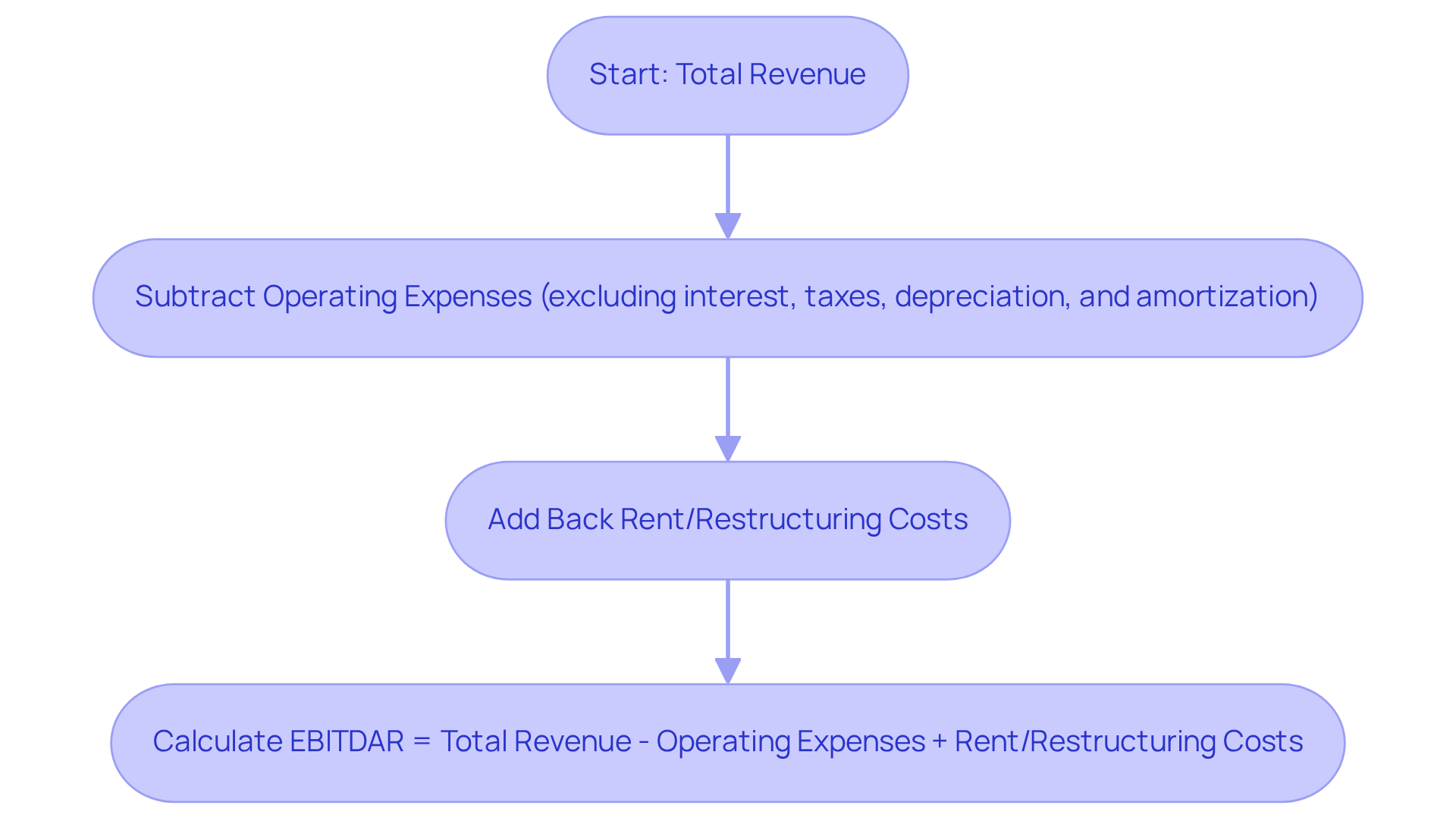
Earnings Before Interest, Taxes, Depreciation, Amortization, and Rent (EBITDAR) differs from EBITDA primarily by incorporating rent and restructuring expenses, making EBITDAR particularly advantageous for establishments facing substantial rental costs. In contrast, net income encompasses all expenses, including interest and taxes, yielding a definitive bottom-line figure.
While EBITDAR serves as a useful metric for assessing operational performance, a more comprehensive understanding offers a nuanced perspective for accommodations, especially when comparing establishments with diverse leasing arrangements. Recognizing these distinctions is crucial for making informed financial decisions that can significantly impact your business's success.
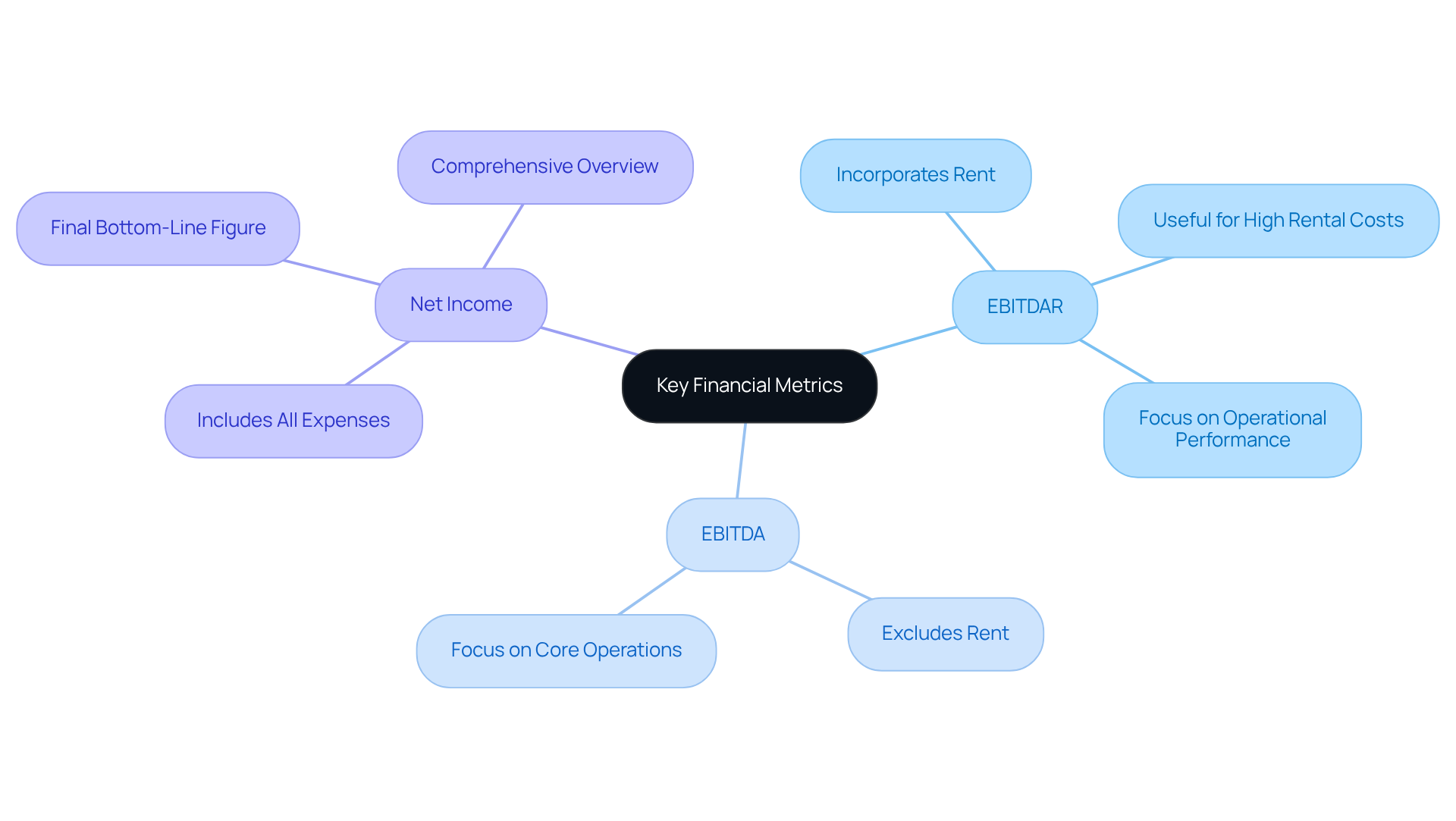
Ebitdar plays a crucial role in evaluating accommodations, especially in the context of mergers and acquisitions. Investors often scrutinize EBITDAR to gauge a lodging establishment's operational efficiency and profitability, free from the distortions that varying rent costs can introduce. By providing a standardized metric, EBITDAR enables more accurate comparisons between properties, thereby simplifying the evaluation process for prospective buyers. Furthermore, understanding EBITDAR can empower property owners to identify enhancement opportunities that may increase their asset's market value.
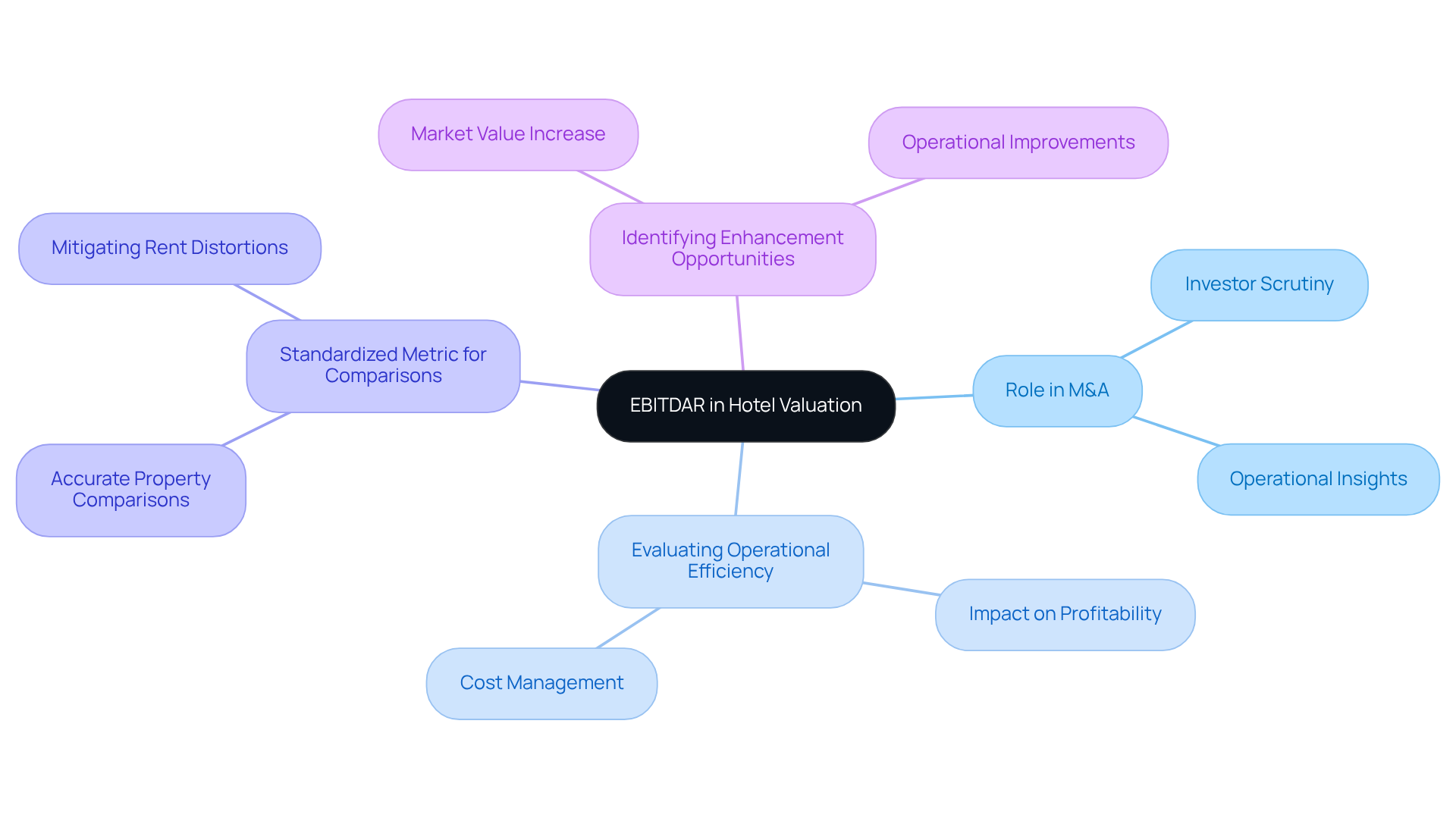
To enhance the accuracy of calculations for ebitdar, it is critical to correctly incorporate restructuring and rental expenses. This entails ensuring that all pertinent expenses are accounted for when assessing operational profitability.
For establishments that lease their properties, understanding the impact of rent on overall profitability is of utmost importance. By accurately reflecting these expenses in ebitdar, property managers can gain a clearer perspective on their financial status, enabling them to make more informed decisions regarding pricing and operational strategies.
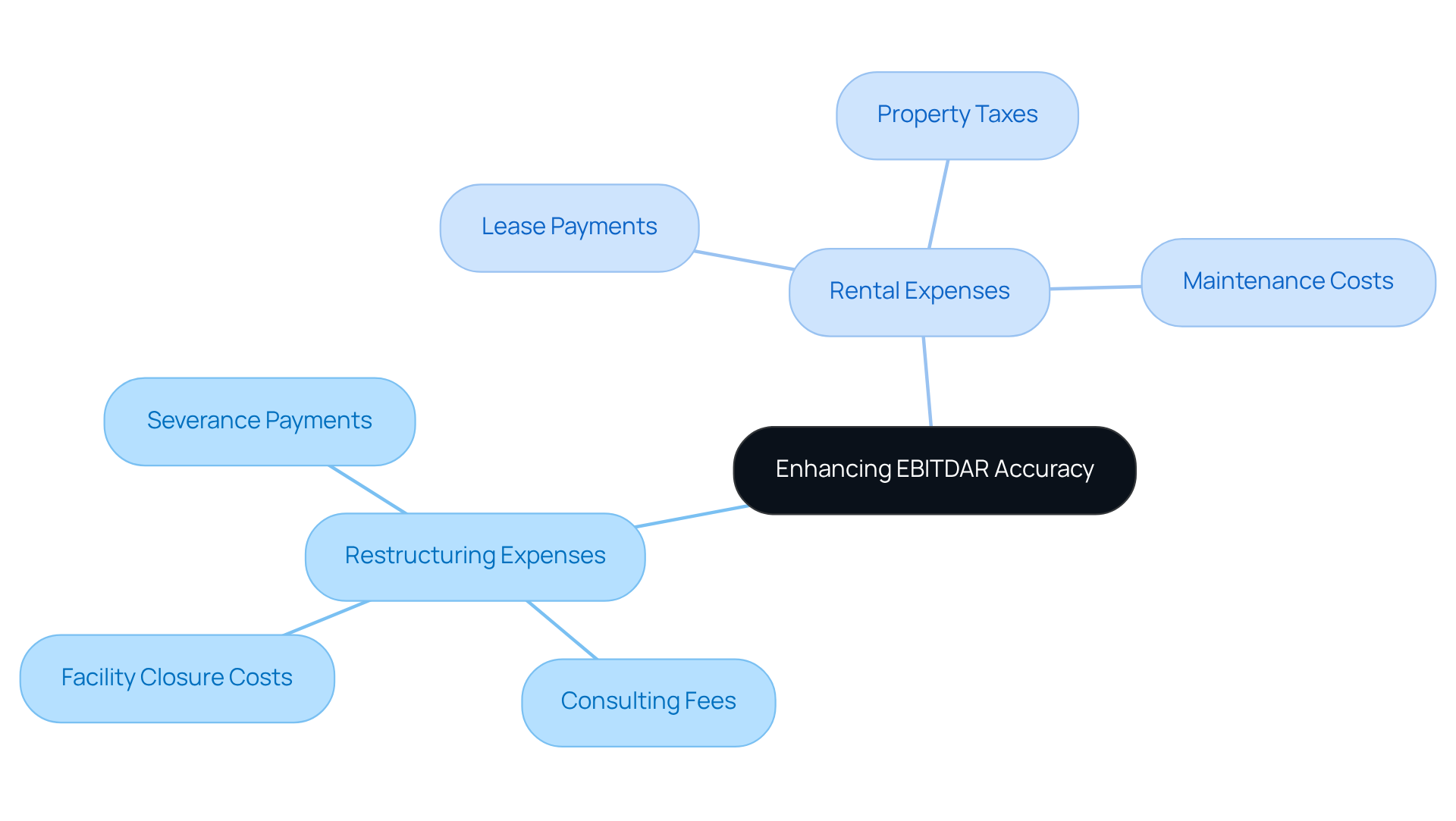
Earnings before interest, taxes, depreciation, amortization, and rent, commonly referred to as ebitdar, provides critical insights into a lodging establishment's cash flows by isolating earnings from operational activities before accounting for non-operational expenses. This clarity empowers lodging proprietors to assess their ability to generate cash from core operations, a fundamental aspect of maintaining liquidity.
Furthermore, by analyzing ebitdar along with earnings before interest, taxes, depreciation, and amortization in conjunction with cash flow statements, property owners can discern trends, manage expenses effectively, and make strategic decisions that bolster financial stability.
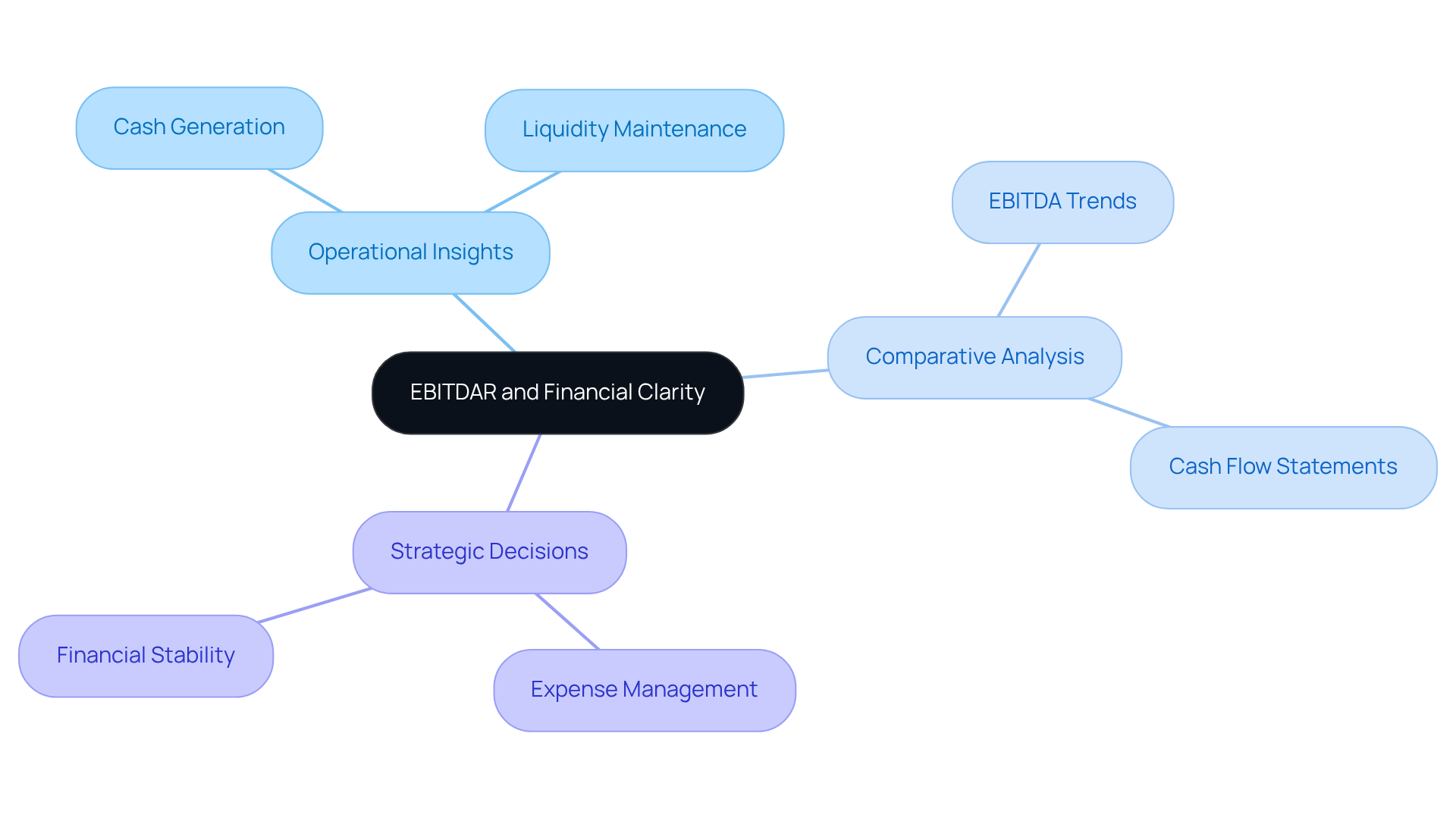
While this financial metric serves a purpose, it is not without its limitations. A significant drawback is its exclusion of capital expenditures, which can be substantial for establishments engaged in renovations or expansions. Furthermore, earnings before interest, taxes, depreciation, amortization, and rent, or ebitdar, may inflate a hotel's economic condition by neglecting fixed expenses like rent, which are critical to consider. Therefore, hotel operators should employ ebitdar, along with other financial metrics such as EBITDA and net income, to achieve a more comprehensive understanding of their financial performance.
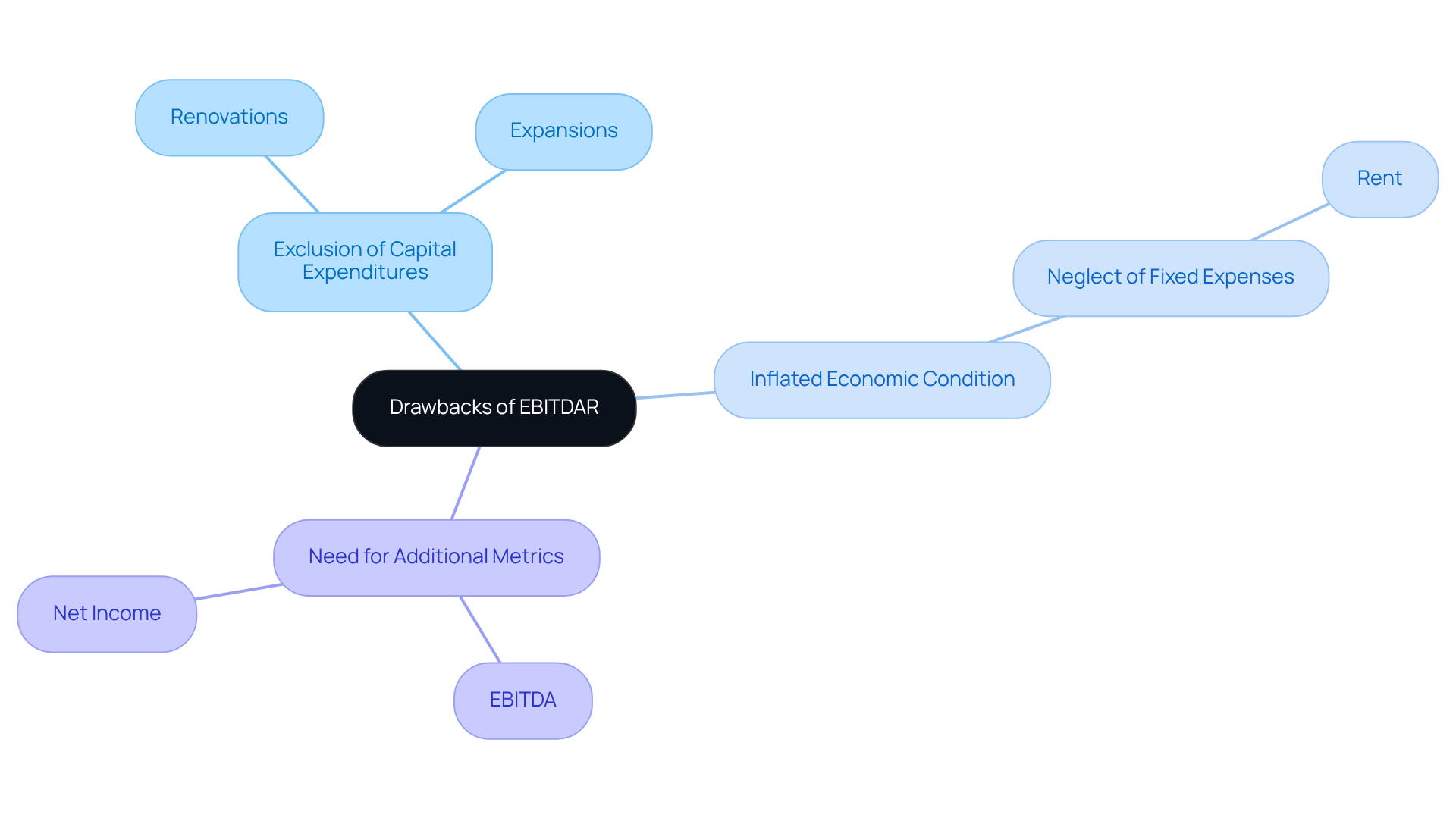
Ebitdar serves as a critical tool for strategic decision-making in hospitality management, providing a transparent view of operational profitability. By examining ebitdar, property owners can identify areas for improvement, such as refining pricing strategies or boosting marketing initiatives. For instance, leveraging financial insights allows hotels to execute targeted promotions or flexible pricing strategies that align with market demand, ultimately optimizing revenue. This metric also facilitates easier comparison between firms by minimizing unique variables unrelated to operations, which is essential for benchmarking performance.
Furthermore, the concept of ebitdar can guide choices related to capital investments, staffing levels, and operational efficiencies. However, it is crucial to recognize that EBITDAR may unjustly exclude controllable costs, potentially diminishing management accountability for incurred expenses. By utilizing ebitdar in their strategic planning along with effective marketing tactics, property owners can position their establishments for long-term success and profitability.
Moreover, employing a mix of economic indicators is essential for a thorough assessment of an establishment's fiscal wellbeing. The equation for ebitdar is defined as Earnings Before Interest, Taxes, Depreciation, and Amortization plus Restructuring/Rental Costs, which provides insight into its computation and usage.
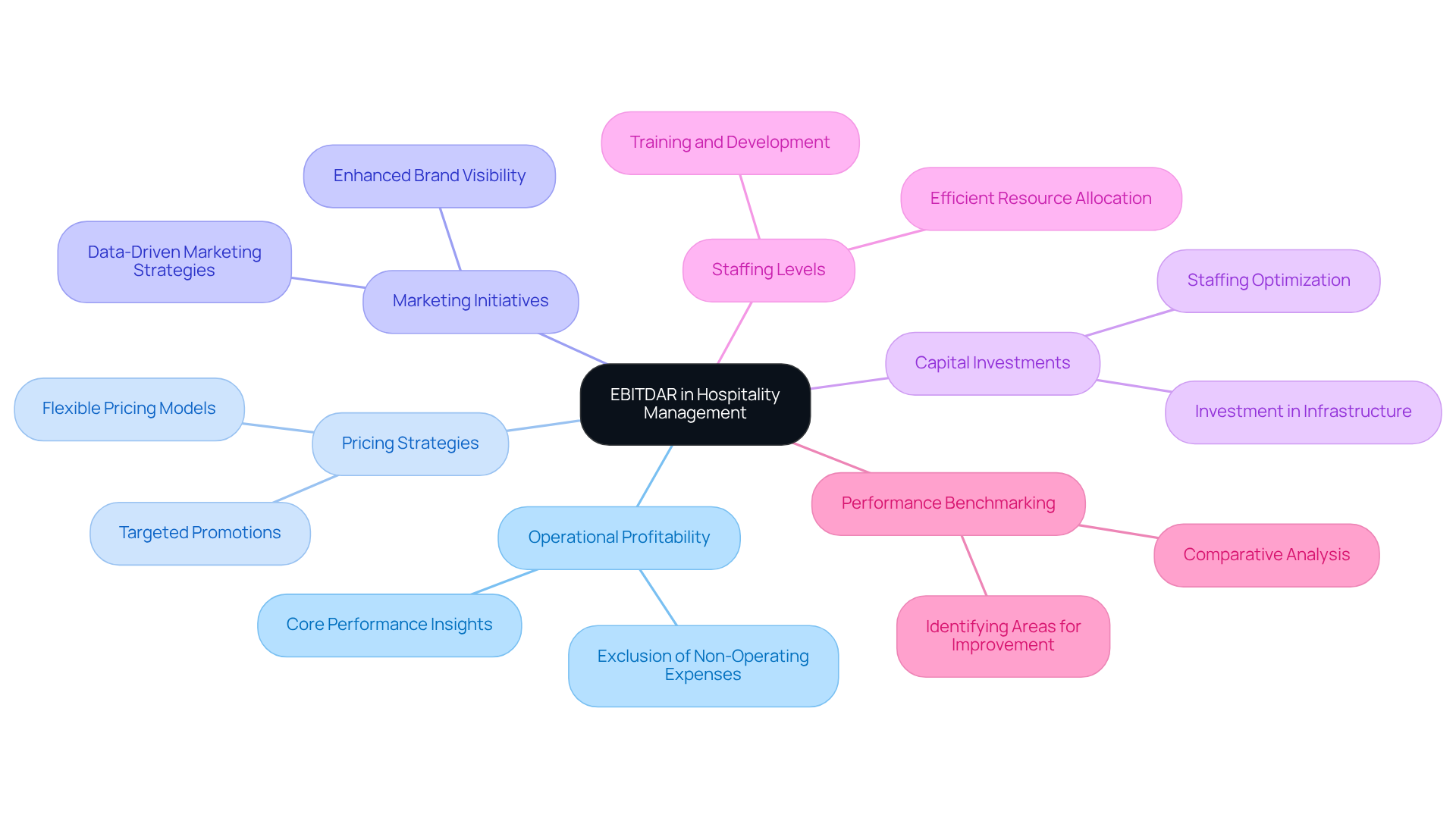
In conclusion, this key metric serves as a cornerstone for accommodation providers, delivering critical insights into operational profitability while excluding variable expenses such as rent. Understanding how to compute and assess ebitdar empowers property owners to make informed economic decisions, enhance their asset's value, and elevate overall profitability. Furthermore, by acknowledging the limitations of ebitdar and integrating it with other financial metrics, hotel owners can devise a comprehensive financial strategy that promotes sustainable growth.
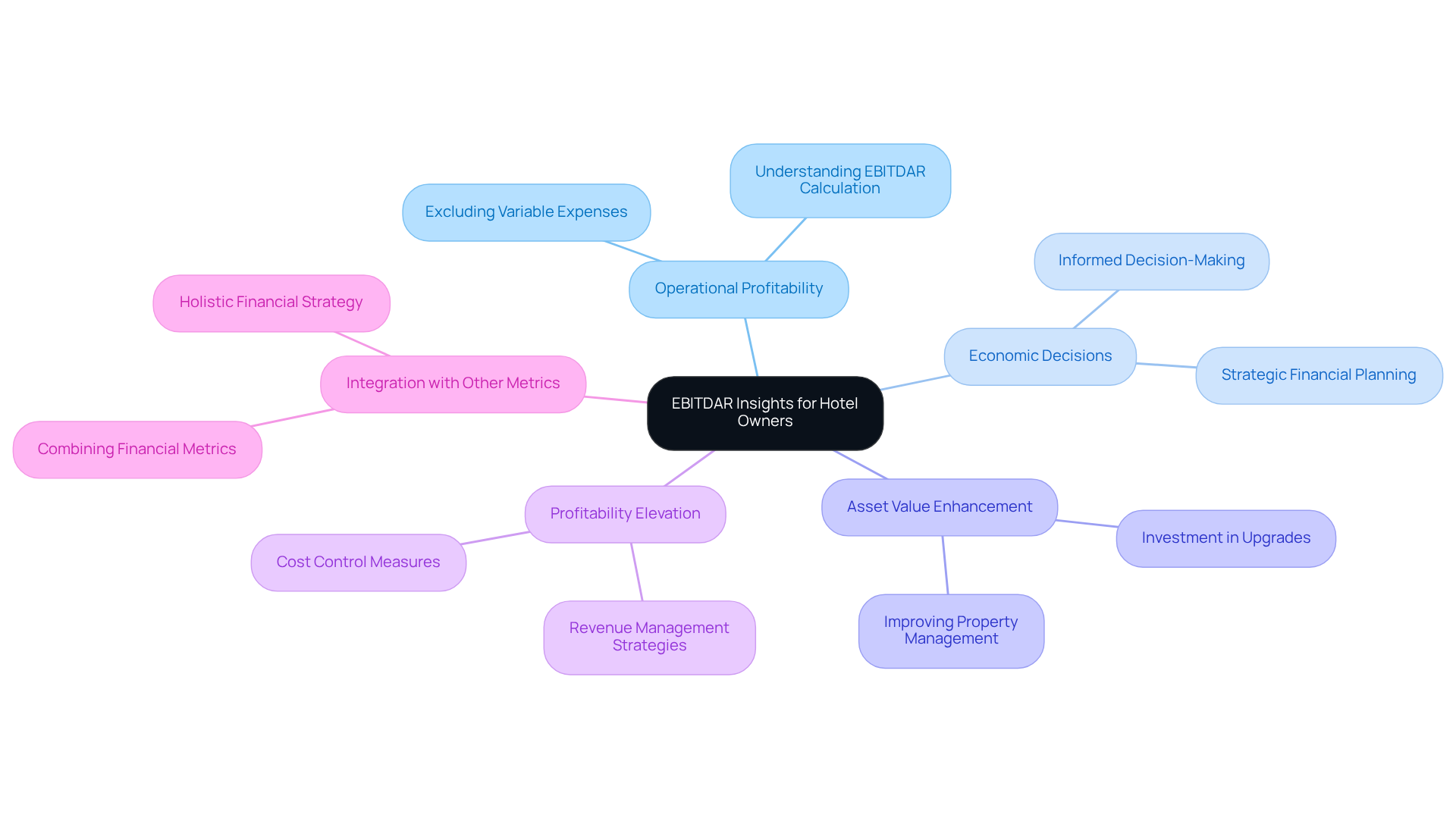
Understanding and leveraging EBITDAR is essential for hotel owners aiming to enhance their financial performance. This metric not only provides clarity on operational profitability by excluding variable expenses, but it also serves as a critical tool in strategic decision-making. By focusing on EBITDAR, property managers can identify opportunities for revenue maximization and operational efficiencies that drive long-term success.
The article outlines several key insights into EBITDAR, including:
Furthermore, it emphasizes the necessity of integrating EBITDAR with other financial metrics to form a comprehensive understanding of a hotel's fiscal health. Recognizing the limitations of EBITDAR, such as its exclusion of capital expenditures, is equally important for informed decision-making.
Ultimately, embracing the insights provided on EBITDAR equips hotel owners with the knowledge to make informed strategic choices. By implementing effective revenue management strategies and continuously monitoring financial metrics, property managers can position their establishments for sustained growth and profitability in an ever-evolving hospitality landscape.
What is EBITDAR and why is it important for hotel owners?
EBITDAR stands for Earnings Before Interest, Taxes, Depreciation, Amortization, and Restructuring or Rent costs. It is important for hotel owners as it provides a clearer perspective on operational profitability by excluding variable expenses, allowing for better comparisons among different accommodations and informed decision-making regarding pricing strategies and operational efficiencies.
How can property owners maximize EBITDAR?
Property owners can maximize EBITDAR by employing data-driven revenue management strategies, analyzing market trends, and implementing tailored marketing strategies like performance marketing and social media management. These approaches help boost profitability, improve occupancy rates, and increase overall revenue.
What role does Lights On play in enhancing EBITDAR for property owners?
Lights On employs a data-driven approach to enhance revenue management strategies that significantly impact EBITDAR. They provide interim revenue management solutions and integrate advanced strategies such as pricing optimization and demand generation, enabling accommodations to maximize their financial performance.
How do you calculate EBITDAR?
To calculate EBITDAR, start with your accommodation's total revenue, subtract operating expenses (excluding interest, taxes, depreciation, and amortization), and then add back any restructuring or rent costs. The formula is: EBITDAR = Total Revenue - Operating Expenses + Rent/Restructuring Costs.
What are the benefits of understanding and using EBITDAR for property managers?
Understanding and using EBITDAR allows property managers to identify areas for improvement, make informed pricing and operational decisions, and ultimately enhance financial outcomes, leading to better revenue potential for their accommodations.
Transform your group booking strategies with Lights On and watch your occupancy soar.